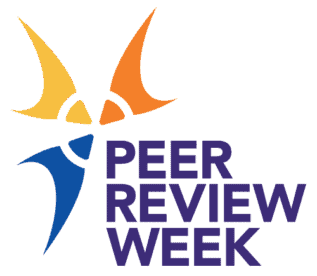With this year’s Peer Review Week kicking off on 25 September, journal editors from The Electrochemical Society share their perspectives on this essential part of the scientific process

Scholarly publishing has been in constant flux since the first online journals appeared in the 1980s, a key turning point that has triggered disruptive business models, a plethora of new publications, and the transformative power of open access. But through this changing landscape one thing has remained constant: the vital role that peer review continues to play in validating, informing and ultimately improving the scientific record.
Even expert authors writing about their own research can benefit from the independent feedback provided in peer review.
Alice Suroveic, Berry College
“Even expert authors writing about their own research can benefit from the independent feedback provided in peer review,” says Alice Suroveic of Berry College in Georgia, US, who is an associate editor of the Journal of The Electrochemical Society (JES). “An external reviewer can identify any gaps that would provide a fuller picture of the experimental process or the results that have been reported, and also ensures that the science is presented clearly enough for the wider community to understand what has been achieved and how they can use it in their own research.”
Fellow associate editor Rohan Akolkar of Case Western Reserve University in Cleveland, US, agrees that peer review can improve the scientific record and speed up the discovery process. “A key outcome from peer review is to elevate the quality of the manuscript, in terms of both the technical content and its overall presentation,” he says. “Reviewer comments can help the authors to better place their scientific conclusions within a broader context, making their published article more useful and impactful for the research community.”
Associate editors like Suroveic and Akolkar are the driving force behind the peer-review process for journals published by The Electrochemical Society (ECS). They first read the manuscripts to ensure they meet the acceptance criteria of the journal, which might include scope, scientific rigour, and the significance of the work, and then identify a few independent peer reviewers who have the knowledge and experience to provide a meaningful commentary on the article.
I put a lot of work into finding reviewers who can provide an objective critique of the work.
Netz Arroyo, Johns Hopkins University School of Medicine
“I put a lot of work into finding reviewers who can provide an objective critique of the work,” says Netz Arroyo of the Johns Hopkins University School of Medicine in Baltimore, US, who is a technical editor of the open-access journal ECS Sensors Plus as well an associate editor of JES. “By matching the interests of the reviewers to the scope of the paper I want them to provide a proper analysis of the methodologies and figures-of-merit that have been presented in the article.”
In many cases, these independent experts will ask clarifying questions or recommend some revisions to the article, helping the authors to improve the descriptions and explanations of their methods, assumptions or conclusions. “Reviewers typically comment on the experimental or the mathematical modelling approaches employed by the authors, ensuring that every step has been explained in sufficient detail and that all the relevant information and analysis has been clearly presented,” says Akolkar. “The best reviewers provide specific suggestions and quantitative feedback that help the authors to address any issues, which improves the overall quality of the published work.”

As scientists who have had their own work critiqued by their peers, all three associate editors appreciate the feedback that they receive through an external review. “You’re making yourself vulnerable when you allow other people to criticize your work, but every peer-review process I have gone through has provided positive and constructive feedback that I can use to improve the final article,” says Arroyo.
That external input can be particularly beneficial for early-career researchers, since it helps them not only to write clear and informative scientific communications but also to evaluate and improve their research skills. “Through peer review, students can find out how other experts in their field are thinking, and get feedback from people who aren’t their mentors or supervisors,” says Arroyo. “They can get an idea of the level they are working at, and find out what they need to do to make their science more valuable.”
While the benefits of peer review for the scientific community may be in little doubt, the practicalities can be a little more challenging. With more journals being launched every year, it is becoming increasingly difficult to find reviewers who are committed to providing the in-depth feedback that can deliver a genuine improvement in the quality of the article. “The sheer volume of journals out there is creating a greater burden on the scientific community,” says Suroveic. “We rely on the goodwill of our reviewers to take a few hours to read an article and provide some meaningful feedback, and it’s becoming harder to find reviewers who are willing to share their time and expertise.”
To help reduce that burden, Akolkar points out that the editors of ECS journals read manuscripts within their area of expertise to make sure that they are worthy of external review. “I triage manuscripts that are assigned to me, and only about 30% of them go out for external peer review,” he says. “When I invite someone to review a manuscript, they are more likely to accept my invitation because they know it will most likely be an interesting and enjoyable read.”
Meanwhile, organizations like the ECS can help to build a community of scientists motivated to review for its journals. The society already recognizes the efforts of its reviewers through certificate programmes, best reviewer awards, and social events at its biennial meetings, and is actively discussing other ways to highlight the importance of their contributions. “We want to give our reviewers more attention and recognition, which in some parts of the world can really help a scientist to get established and build a career,” says Arroyo. “It may not be direct compensation for their time and effort, but by showcasing our peer reviewers as active scientific contributors the ECS can support the community and help it to grow.”

The journal editors are also keen to nurture a new generation of peer reviewers, many of whom are eager to establish new connections within the ECS. “It’s not just about finding a peer reviewer, it’s also about developing the community, and a great way to do that is to get early-career researchers involved,” says Akolkar. “When they review for JES, they are developing a deeper relationship with ECS, and in the future they too may become journal editors themselves.”
Both the ECS and the editors provide plenty of support to help early-career researchers develop their peer-reviewing skills. Akolkar says that he often takes the time to talk to first-time reviewers, guiding them through the process and highlighting which aspects of the review they should focus on. “As with a lot of these things, you learn as you go, but if needed I am always happy to provide feedback to new reviewers to help them learn and improve,” he says.
The ECS has also provided more formal training by hosting the IOP Peer Review Excellence workshop at its latest biennial meeting, which will be repeated at the society’s upcoming event in Gothenburg, Sweden. “The workshop provides training on best practices, things to check for, and what sort of feedback to provide,” explains Suroveic. In addition, each ECS meeting features a meet-the-editors event to enable early-career researchers to find out more about journal publishing, ask any questions, and sign up to be a peer reviewer.
Peer review helps to shape your own understanding and generating new ideas along the way.
Rohan Akolkar, Case Western Reserve University
Even though peer review is often viewed as a service to the scientific community, Akolkar believes that reviewing manuscripts has many unique benefits on its own. “Science and engineering is not a sole endeavour, it is a collective exercise in which different approaches are being developed to solve research problems, often in unexpected ways,” he says. “Peer review gives you greater access to that collective thinking, helping to shape your own understanding and generating new ideas along the way.”
Indeed, all three editors believe that peer review will continue to be the driving force that sustains the quality and impact of electrochemical research for many years to come. The approach may evolve, however, with Akolkar pointing out that the focus of peer review over the last 20 years or so has shifted towards faster processes that enable more rapid publication. “When I was a student, the peer review process would take up to six months, but now reviewers are only given a few weeks to write a report,” he says. “That accelerates publication, but it also means that we give reviewers the time to provide only a selective assessment of the major points in the paper.”
Different models for peer review are also emerging, mainly to ensure that the assessment of scientific work remains as objective and open as possible. Many publishers now offer the option of transparent peer review, in which the full exchange between authors and reviewers is published alongside the manuscript, while a complementary double-blind approach conceals the identities of both the authors and the reviewers. “It’s crucial to assess the paper on its merits, rather than basing an opinion on who has written it or which institution they are from,” says Arroyo. “We can all harbour some bias, whether we are aware of it or not, and we need to ensure that peer review is always scientific and objective.”
- The ECS would like to express its gratitude to all of the peer reviewers who have supported its mission to disseminate scientific knowledge throughout its history, and to those who have participated in training workshops that will extend this mission into the future. Anyone who would like to become a peer reviewer for the ECS can register their interest




